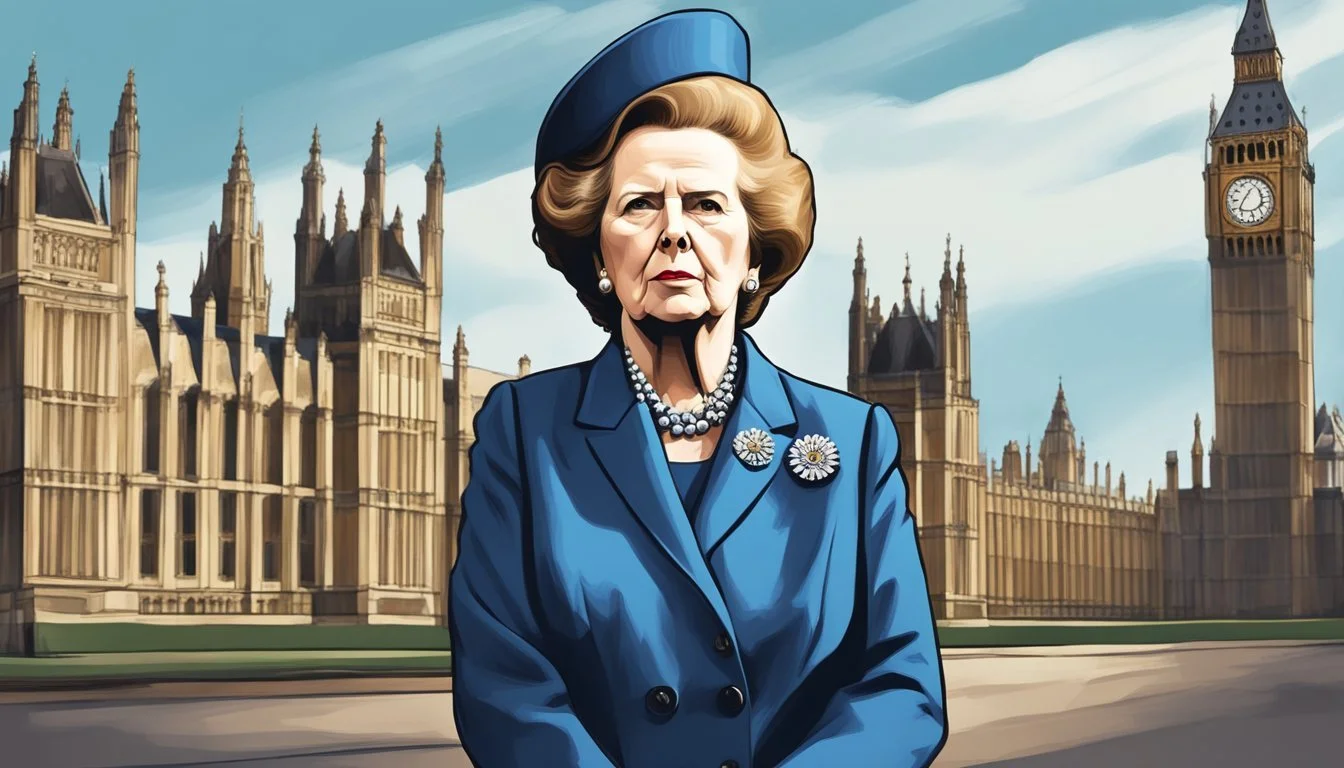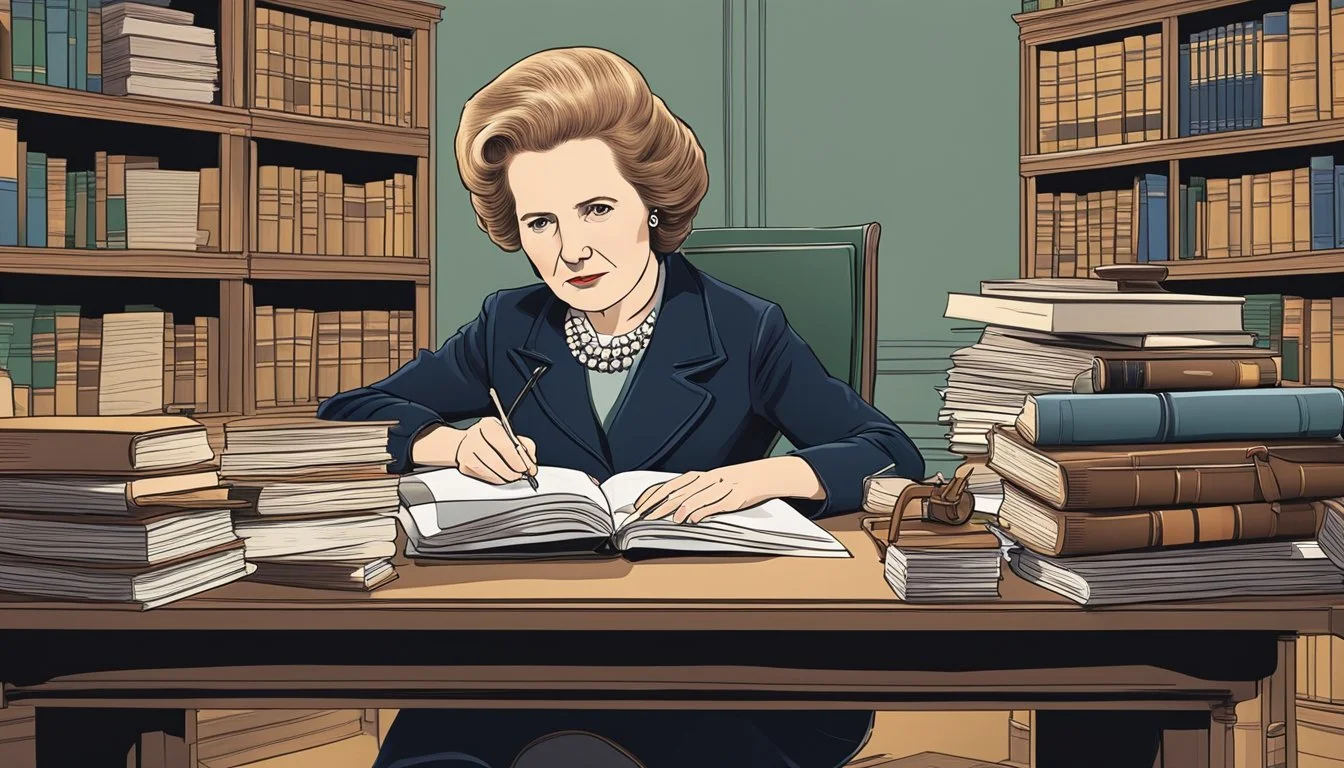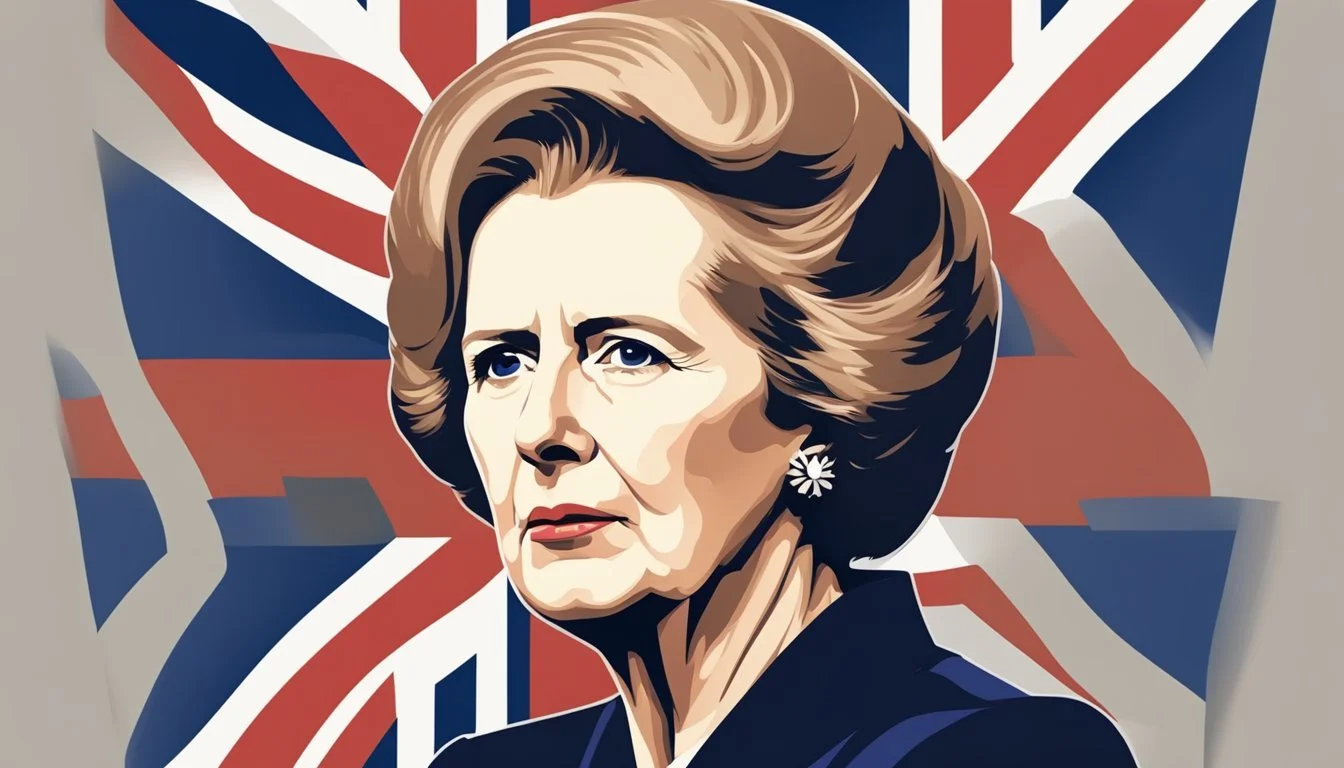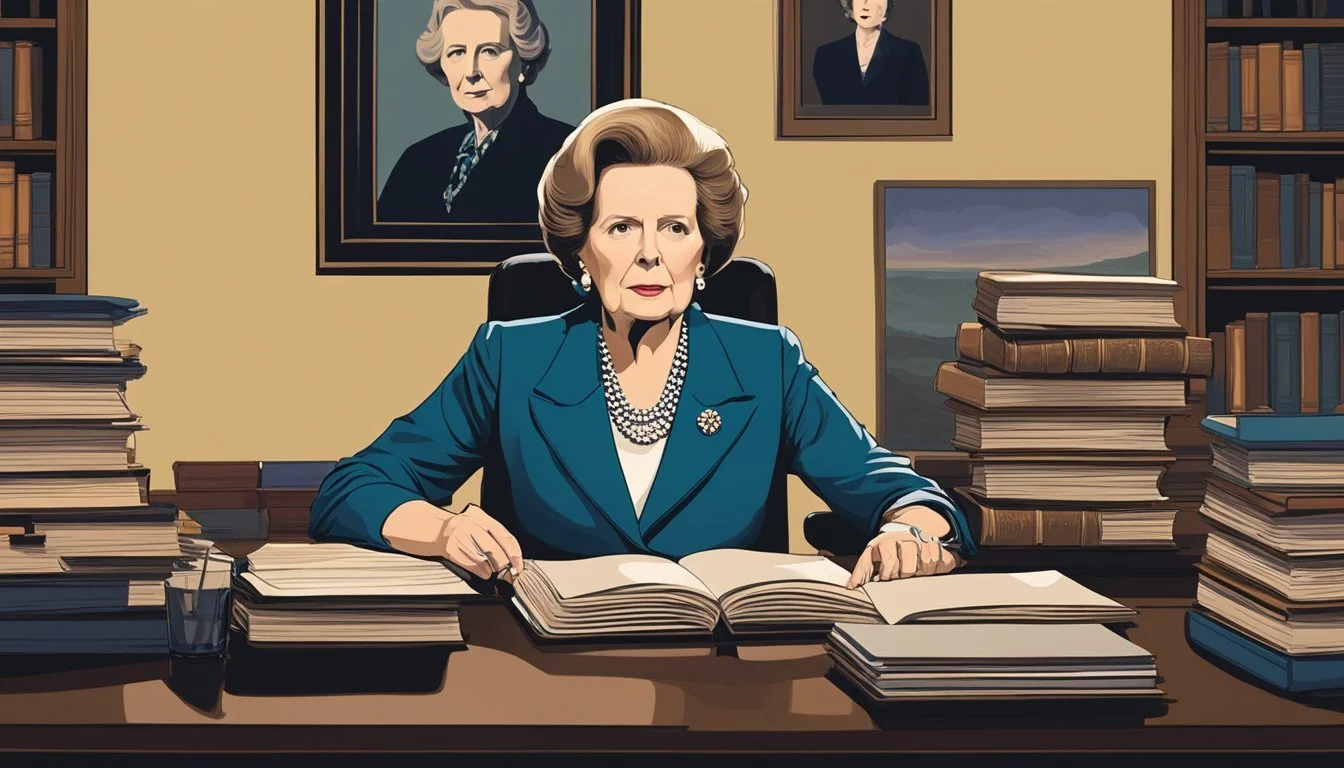Iron Will: The True Margaret Thatcher Behind 'The Iron Lady'
Unveiling the Real Prime Minister
Margaret Thatcher, Britain's first female Prime Minister, was a polarizing figure who left an indelible mark on British politics. Dubbed "The Iron Lady" by Soviet journalists, she embraced the moniker as a testament to her unwavering resolve and strength of character. Thatcher's tenure as Prime Minister from 1979 to 1990 was defined by her uncompromising leadership style and radical economic policies that reshaped Britain's political landscape.
Behind the public persona of the Iron Lady was a complex individual driven by conviction and ambition. Born Margaret Roberts to a grocer's family, she rose through the ranks of the Conservative Party, breaking barriers in a male-dominated field. Her journey from humble beginnings to the highest office in the land shaped her worldview and fueled her determination to transform Britain.
Thatcher's legacy remains a subject of intense debate. While supporters credit her with revitalizing the British economy and restoring national pride, critics argue that her policies widened social divides. The Iron Lady's reign was marked by significant events, including the Falklands War and pivotal negotiations with the Soviet Union, which cemented her reputation on the global stage.
Early Life and Education
Margaret Thatcher's formative years laid the groundwork for her future political career. Her upbringing in a small town and academic pursuits at Oxford University shaped her values and worldview.
Childhood and Family
Margaret Hilda Roberts was born on October 13, 1925, in Grantham, Lincolnshire. Her father, Alfred Roberts, owned two grocery shops and served as a Methodist preacher and local councillor. Her mother, Beatrice Ethel, was a dressmaker.
Margaret and her older sister Muriel lived above one of the family shops. This middle-class upbringing instilled in her a strong work ethic and sense of frugality.
Alfred Roberts played a significant role in shaping Margaret's political views. He encouraged her interest in current affairs and conservative politics from an early age.
Oxford University Years
In 1943, Margaret Roberts won a scholarship to study chemistry at Somerville College, Oxford University. She specialized in X-ray crystallography under the supervision of Nobel Prize winner Dorothy Hodgkin.
At Oxford, Roberts became president of the University Conservative Association. This marked her first foray into political leadership and debate.
She graduated with a second-class honors degree in chemistry in 1947. Though her academic focus was scientific, her extracurricular activities revealed a growing passion for politics.
After graduation, Roberts worked briefly as a research chemist. However, her political ambitions soon led her to study law, setting the stage for her future career in government.
Rise in British Politics
Margaret Thatcher's ascent in British politics was marked by determination and a clear vision for the country. She overcame gender barriers and skepticism to become a dominant force in the Conservative Party.
Early Political Career
Thatcher entered politics in the 1950s, winning a seat in the House of Commons in 1959. She served as Parliamentary Secretary to the Ministry of Pensions and National Insurance from 1961 to 1964. In 1970, she became Secretary of State for Education and Science under Edward Heath's government.
Thatcher's tenure as Education Secretary was controversial. She ended free milk for schoolchildren over seven, earning the nickname "Thatcher, Thatcher, Milk Snatcher." Despite criticism, she demonstrated her resolve to implement tough policies.
Leader of the Conservative Party
In 1975, Thatcher challenged Edward Heath for leadership of the Conservative Party. She won, becoming the first woman to lead a major British political party. Her victory shocked many political observers.
As party leader, Thatcher developed her conservative economic policies. She advocated for free-market principles, reduced government intervention, and lower taxes. Her forceful leadership style and unwavering stance on issues earned her the moniker "Iron Lady."
Thatcher's rise culminated in her election as Prime Minister in 1979. She defeated Labour's James Callaghan, becoming Britain's first female Prime Minister. This historic achievement cemented her place in British political history.
Prime Ministerial Tenure
Margaret Thatcher's tenure as Prime Minister from 1979 to 1990 was marked by sweeping economic reforms, assertive foreign policy, and domestic challenges. Her leadership transformed Britain's political landscape and left a lasting impact on the nation.
Economic Policies and British Economy
Thatcher implemented radical free-market policies aimed at reducing inflation and revitalizing the British economy. She privatized state-owned industries, deregulated financial markets, and cut government spending. These measures, known as "Thatcherism," initially led to high unemployment and social unrest.
The economy eventually rebounded, with inflation falling from 18% to 4.6% by 1983. Thatcher's policies encouraged entrepreneurship and foreign investment, contributing to economic growth in the mid-1980s.
Her government sold over 1.5 million council houses, creating a new class of homeowners. This move reshaped Britain's housing market and social structure.
Foreign Policy and the Soviet Union
Thatcher's foreign policy was characterized by a strong anti-communist stance and close alignment with the United States. She forged a close partnership with U.S. President Ronald Reagan, united in their opposition to Soviet expansionism.
Her tough rhetoric against communism earned her the nickname "Iron Lady" from the Soviet press. Thatcher played a crucial role in easing Cold War tensions, recognizing reformist Soviet leader Mikhail Gorbachev as someone she could "do business with."
She supported NATO's deployment of nuclear missiles in Europe, strengthening the Western alliance's position against the Soviet Union.
Falklands War
The 1982 Falklands War was a defining moment in Thatcher's premiership. When Argentina invaded the British-controlled Falkland Islands, she responded decisively, dispatching a naval task force to reclaim the territory.
The 74-day conflict ended in British victory, boosting Thatcher's popularity at home. The war demonstrated Britain's military capability and Thatcher's resolve on the world stage.
The conflict cost 255 British and 649 Argentine lives but solidified British control over the islands. It also contributed to the fall of Argentina's military junta.
Domestic Challenges and the Miners' Strike
Thatcher faced significant domestic opposition, particularly from trade unions. The 1984-85 miners' strike was a major confrontation between her government and the National Union of Mineworkers.
The year-long strike, involving 142,000 miners, was triggered by plans to close unprofitable coal mines. Thatcher refused to back down, viewing the strike as a challenge to her economic reforms.
The government's victory over the miners weakened the trade union movement and accelerated the decline of the coal industry. This conflict symbolized Thatcher's determination to reduce the power of unions and reshape Britain's industrial landscape.
Notable Policies and Events
Margaret Thatcher's tenure as Prime Minister was marked by several significant policies and events that shaped Britain's political landscape. These included controversial domestic initiatives, threats to her personal safety, and key international relationships.
Poll Tax Controversy
Thatcher introduced the Community Charge, commonly known as the Poll Tax, in 1989. This flat-rate tax replaced property-based rates for local government funding. The policy aimed to make local councils more accountable to voters.
The Poll Tax was highly unpopular, viewed as unfair because it charged the same amount regardless of income or property value. This led to widespread protests and riots, most notably in London in March 1990.
The tax's unpopularity contributed significantly to Thatcher's political downfall. It was a major factor in her resignation as Prime Minister in November 1990. Her successor, John Major, quickly moved to replace the Poll Tax with the Council Tax system.
Assassination Attempt by the Irish Republican Army
On October 12, 1984, the Irish Republican Army (IRA) targeted Thatcher in a bombing at the Grand Hotel in Brighton. The attack occurred during the Conservative Party Conference.
Thatcher narrowly escaped injury, but five people were killed, including a Conservative MP. The blast destroyed her bathroom moments after she left it. Despite the attack, Thatcher insisted the conference continue as scheduled.
She delivered her speech the next morning, defiant in the face of terrorism. This event strengthened her resolve against the IRA and reinforced her tough stance on security issues. It also increased public sympathy for her leadership.
Relationship with United States and Ronald Reagan
Thatcher formed a close alliance with U.S. President Ronald Reagan during the 1980s. Their partnership, often called the "Special Relationship," significantly influenced global politics during the Cold War era.
They shared similar conservative ideologies and free-market economic policies. Thatcher and Reagan collaborated on international issues, particularly in their approach to the Soviet Union.
Their united front played a crucial role in diplomatic efforts that led to improved East-West relations. They supported each other during key events, such as the U.S. bombing of Libya in 1986 and the Falklands War in 1982.
This strong Anglo-American alliance continued to shape international relations long after both leaders left office.
Leadership and Legacy
Margaret Thatcher's resolute leadership style and far-reaching impact on British politics cemented her place in history. Her tenure as Prime Minister transformed the UK's economic and social landscape, leaving an enduring legacy.
Longest-Serving British Prime Minister
Margaret Thatcher held office from 1979 to 1990, making her the longest-serving British Prime Minister of the 20th century. During her 11 years and 209 days in power, she implemented sweeping reforms that reshaped the UK's economy and society.
Thatcher's time as Prime Minister was marked by significant events, including:
The Falklands War
Privatization of state-owned industries
Deregulation of the financial sector
Confrontations with trade unions
Her long tenure allowed her to enact substantial changes to British policy and governance, earning her both fervent supporters and staunch critics.
Influence on the Conservative Party
Thatcher's leadership profoundly impacted the Conservative Party's ideology and direction. She championed free-market economics and individual responsibility, principles that became known as "Thatcherism."
Key aspects of Thatcherism included:
Reducing the role of the state in the economy
Promoting privatization and entrepreneurship
Emphasizing low inflation and sound money
These policies reshaped the Conservative Party's platform for decades. Even after her departure, subsequent party leaders had to contend with her legacy and often measured themselves against her standards.
Strength and Confidence
Thatcher's reputation as the "Iron Lady" stemmed from her unwavering determination and self-assurance. She faced numerous challenges head-on, including:
Economic recessions
IRA terrorist attacks
The Brighton hotel bombing
Her resolute response to these crises reinforced her image as a strong leader. Thatcher's confidence was evident in her famous quote: "The lady's not for turning."
This strength extended to international affairs, where she played a crucial role in ending the Cold War alongside US President Ronald Reagan. Her steadfast approach earned her respect on the global stage, though it sometimes led to confrontations with other world leaders.
The Iron Lady in Culture
Margaret Thatcher's "Iron Lady" persona has left an indelible mark on popular culture. Her image and legacy continue to inspire artistic interpretations and media portrayals.
Meryl Streep's Portrayal in Biopic
Meryl Streep's portrayal of Margaret Thatcher in the 2011 film "The Iron Lady" brought renewed attention to the former Prime Minister's life. Directed by Phyllida Lloyd, the biopic earned Streep an Academy Award for Best Actress.
The film explored Thatcher's rise to power and her later years, showcasing her determination and controversial policies. Streep's performance captured Thatcher's distinctive voice and mannerisms, earning praise for its accuracy and depth.
Critics noted the film's balanced approach, presenting both Thatcher's strengths and vulnerabilities. It sparked discussions about her political legacy and personal life, introducing younger generations to the Iron Lady's impact.
Influence on Popular Media
Thatcher's Iron Lady persona has inspired numerous references in television, literature, and music. Her distinctive style and strong personality have made her a recognizable figure in pop culture.
TV shows like "The Crown" have featured dramatized versions of Thatcher, further cementing her place in cultural memory. Political satires often draw on her image as a symbol of conservative politics and strong leadership.
Musicians have written songs about Thatcher, ranging from critical protest anthems to more nuanced explorations of her legacy. Her influence extends to fashion, with her power suits and handbags becoming iconic symbols of female leadership in the 1980s.
Final Years and Death
Margaret Thatcher's later years were marked by personal loss and health challenges. Her decline from public life coincided with significant changes in her personal circumstances.
Denis Thatcher and Domestic Life
Denis Thatcher, Margaret's husband of 52 years, passed away in 2003. His death deeply affected the former Prime Minister, who had relied on his unwavering support throughout her political career.
After Denis's passing, Margaret lived a quieter life, occasionally attending public events. She focused on writing her memoirs and spending time with family.
Health Issues
Thatcher's health began to deteriorate in the early 2000s. She suffered a series of minor strokes, which led to her withdrawing from public speaking engagements in 2002.
In 2008, her daughter Carol revealed that Margaret had been diagnosed with dementia. This condition progressively affected her memory and cognitive abilities.
Thatcher's final years were spent in seclusion, cared for by medical staff. She died on April 8, 2013, at the age of 87, following a stroke. Her passing marked the end of an era in British politics.
Margaret Thatcher's Historical Relevance
Margaret Thatcher's tenure as Prime Minister from 1979 to 1990 left an indelible mark on British politics and international relations. Her policies and leadership style reshaped the UK's economic landscape and influenced global events during a pivotal period in history.
Impact on Modern British Politics
Thatcher's premiership transformed the UK's political landscape. She privatized numerous state-owned industries, weakened trade union power, and promoted a free-market economy. These policies, known as "Thatcherism," continue to influence British politics today.
Her leadership during the Falklands War in 1982 boosted national pride and solidified her image as a strong leader. Thatcher's commitment to reducing the UK's contributions to the European Economic Community set the stage for future debates on Britain's role in Europe.
Her conservative ideology reshaped the Conservative Party and pushed Labour to adopt more centrist policies. This shift in political dynamics is still evident in modern British politics.
Friendship and Influence Internationally
Thatcher's close relationship with U.S. President Ronald Reagan strengthened the "Special Relationship" between the UK and USA. Their partnership was crucial in shaping Western policy during the Cold War's final years.
She played a key role in improving East-West relations, famously declaring Soviet leader Mikhail Gorbachev a man she "could do business with." This paved the way for productive negotiations between the superpowers.
Thatcher's firm stance against apartheid in South Africa, including her support for sanctions, contributed to international pressure on the regime. Her influence extended to advocating for Hong Kong's future during negotiations with China over the territory's handover.




